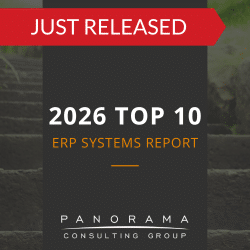In March 2017, Chicago-based brewer MillerCoors sued Indian technology services firm HCL (and its American affiliate) for more than $1 million.
At the core of the chaos? A failed SAP implementation, which MillerCoors blamed on a string of inefficiencies catalyzed by HCL.
The ERP lawsuit was nearly three years in the making, and cost both parties significant sums of money and brand reputation.
Today, we’re taking a look back at the MillerCoors ERP failure. What exactly happened and most importantly, what can you learn from it?
Contemplating litigation?
We are called upon to investigate the feasibility of litigation, provide software expert witness testimony and build background reporting for some of the industry’s highest-profile ERP lawsuits.
The MillerCoors ERP Failure: What Happened?
This particular failure started back in 2014.
In September of that year, MillerCoors began issuing ERP requests for proposals (RFPs) to prospective implementers. A few months later, MillerCoors awarded the project to HCL. The two entities entered into a master service agreement, and HCL started blueprinting the project.
The ERP solution was based around two types of SAP warehouse management software known as Global Available-to-Promise (ATP) and Extended ATP.
Everything seemed to be coming together, but then issues started to occur:
Early Quality Concerns
Not long after the project was awarded, MillerCoors began to question the direction that HCL was taking on the project. There were concerns regarding the blueprint, as well as the assigned resources.
To address these concerns, HCL issued a new work order, which increased the total price of the ERP implementation by more than $9 million. Previously, it was capped at around $53 million.
Critical Defects Identified
In May 2015, the partners reduced the scope of the project so MillerCoors could meet critical deadlines. The initial phase went live in November, though the official complaint would later reveal there were more than 50 known defects at this time.
Following that first rollout, the team found thousands of other defects. From there, issues began to snowball as the solution quickly became unsound.
Despite requesting direct support from HCL in March 2016, MillerCoors ultimately scrapped the SAP implementation that June. The lawsuit was issued less than a year later.
How to Avoid Similar ERP Mistakes
There were a few key events that led to the MillerCoors ERP failure. The issues didn’t arise overnight, but they festered long enough to disrupt the entire project.
Let’s take a look at a few of the lessons we can learn from this incident and how you can avoid similar mistakes.
1. Clearly Communicate Expectations
Often, ERP failures happen because of processes and people, not because the technology is faulty.
In this case, the primary issues that MillerCoors faced weren’t with the SAP software, but with the way HCL handled the project.
In addition to a lack of ERP system testing leading to undetected defects, HCL fell short in a number of other key areas. Specifically, the official complaint maintains that HCL failed to:
- Meet agreed-upon project deadlines
- Provide robust project leadership
- Deliver a solution that met industry standards
- Deliver a solution that met performance requirements
These issues underscore the need to fully define project expectations from the very beginning.
For example, you should draft a detail-rich statement of work (SOW) that can only be altered with formal work orders and change orders.
While it’s common to assume that a consulting company will do basic things like system testing, it’s better to assume the worst.
2. Don’t Reuse Existing Contracts
Though the details aren’t crystal clear, it appears as though MillerCoors and HCL had a working relationship prior to the awarded contract in 2014.
As such, they used an existing master services agreement to define the terms of the new contract. With this original document in place, they drafted a series of work orders to cover each new project phase.
While this might have been convenient at first, it ultimately complicated efforts as evidenced by the fact that the project ended in a breach of contract lawsuit.
Any time you begin a project or implement a new project phase, there should be a fresh contract, SOW, and work orders in place. Otherwise, it simply creates too many grey areas that are open to individual interpretation.
3. Use Specific Language
When you do draft a new contract, we recommend that the language be as thorough, clear, and concise as possible.
In this case, MillerCoors drafted work orders that clearly laid out anticipated project deadlines. However, the language was not clear around the following points:
- Accepting or rejecting deliverables
- Requiring HCL to correct defective deliverables
- Criteria to be used in user acceptance testing
- Incentivizing timely delivery
- Repercussions for missing deadlines or providing faulty deliverables
When your contracts are specific and detailed, you’re covering yourself on all sides. Otherwise, the ERP vendor or systems integrator could claim confusion, thus limiting their accountability for unsatisfactory performance.
4. Enlist Negotiation Support
While certain types of documents, such as SOWs and work orders, contain less legal jargon than others, it’s still important to carefully review them.
If you don’t feel comfortable reviewing or negotiating an ERP contract yourself, it’s important to hire a consulting team to assist you.
Had MillerCoors gone this route, they could have tightened their contract language and made expectations clear from the beginning. Likewise, HCL could have shielded their company from burdensome demands and costly penalties.
The official complaint alleges that in one particular work order, MillerCoors utilized overly demanding language that seemed to shift excess responsibility onto HCL right before the lawsuit hit.
The fact that this contract went through reveals that HCL’s legal department likely had little oversight when it came to details. As a result, HCL was unable to effectively defend itself against the allegations brought forth by MillerCoors.
The Importance of ERP Contract Management
As you can see, most of the issues that led to the MillerCoors ERP failure centered on unclear and inconsistent contracts.
While contract management is a critical part of implementation, it’s often rushed over in the excitement to roll out the project.
Taking the time to get this part right can make a world of difference. Detailed documentation helps a project run more smoothly and serves as a record of activity in the event that something goes wrong.
Our team of ERP consultants can help you with ERP contract negotiation and project oversight. Contact us below to learn more.















